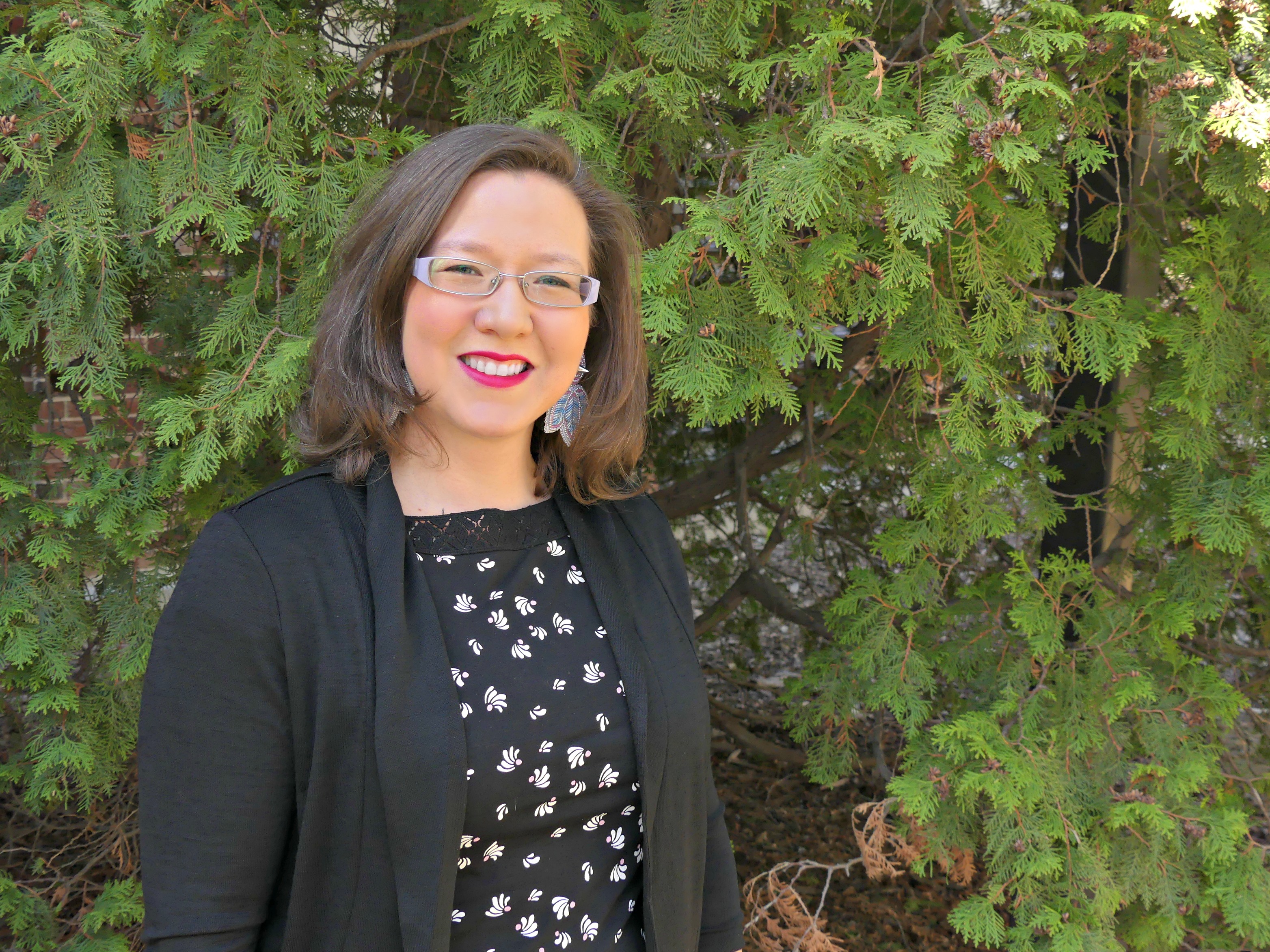
Tricia McGuire-Adams is a joint-appointment assistant professor with the Faculty of Kinesiology, Sport, and Recreation and the Faculty of Native Studies.
In a joint appointment between the Faculty of Kinesiology, Sport, and Recreation and the Faculty of Native Studies, assistant professor Tricia McGuire-Adams brings to the University of Alberta Anishinaabe research and teachings. Hailing from Bingwi Neyaashi Anishinaabek, located in Robinson Superior Treaty territory and Thunder Bay Ontario, McGuire-Adams is driven to engage in research that enhances reciprocal relationships and community well-being, and advances Indigenous community understandings of holistic well-being spanning Indigenous physical activity, sport and recreation.
At what stage in your educational journey did you decide to continue on the academic path?
After earning my Master of Arts in Indigenous Governance, I knew I wanted to work with the Indigenous community, which I did for a period of five years before deciding to continue with my educational journey. Having worked with the urban Indigenous community in Ottawa, both professionally and in a volunteer capacity, I had a strong vision for what I hoped to achieve entering into the Human Kinetics Ph.D. program at the University of Ottawa; I wanted to look to Anishinaabeg ways of being to help better understand Indigenous peoples apparent trajectory of ill health.
What inspired your research interests?
Firstly, being a kettlebell coach for 4Vitality Kettlebell Training Program, with my partner Ryan Adams, I have had the privilege to help foster a kettlebell community committed to strength, empowerment, and vitality that has driven my overall vision for community-driven research. Secondly, remembering the immense strength of my Anishinaabekweg (Anishinaabe women) ancestors helped propel my current research purpose, while being cognizant of seven generations from now. Lastly, the regeneration of Anishinaabeg gikendaasowin (knowledge) guides my overall vision of research. As an Anishinaabe researcher, relationality and accountability are fundamental values inspiring and guiding my research interests and projects.
One area of your research focuses on investigating physical activity as a process of decolonization. Why do you think it's important to investigate this area? What results have you seen in this area of research so far?
Health researchers have mainly focused on Indigenous peoples' health as deficient when compared to non-Indigenous peoples, which perpetuates a settler colonial view of our health. As such, through my research I provide a counter narrative to the deficit-based literature by describing how Anishinaabeg and other Indigenous people understand their health, wellbeing, and personal decolonization as it relates to physical activity. Indigenous-led research and theorizing is necessary to find lasting solutions to the apparent trajectory of ill health experienced among Indigenous people in what is currently Canada. Further, by using Anishinaabeg gikendaasowin, it propels new ways of thinking about physical activity and is an enactment of decolonization in research. As my research has demonstrated, the narratives/stories of Anishinaabeg, both ancestral and current, are valuable in both addressing ill health and promoting wellbeing. I believe the approach that centers Indigenous stories and theory regarding health will greatly advance the field of Indigenous health research. There is still much to learn from the perspectives of Indigenous peoples - especially women, disability and LBGTQ2IA perspectives- about our concepts of health, wellbeing, the land, stories of our ancestral strengths, and in consideration of seven generations into the future.
How do Indigenous research methodologies differ from other research methodologies?
This is a huge question that cannot be fully answered here. However, Indigenous research methodologies center Indigenous voices and ways of being, enact relational accountabilities (relationships to participants, the land, non-human kinship relationships etc.), and promotes decolonization. Indigenous research methodologies, and Indigenous theories, are important to the field of Indigenous health, sport, recreation, and physical activity as we seek to advance Indigenous ways of being in research and other scholarly pursuits.
What has been your most proud and/or significant moment as a researcher?
Being able to co- create a community-driven research project with Naicatchewenin First Nation has been my most humbling and meaningful experience thus far (funded by a CIHR Catalyst Grant: Indigenous Approaches to Wellness). There is no greater privilege than to work alongside Anishinaabeg community members as we use our knowledge, language, and worldview to engage with Anishinaabeg gikendaasowin in research.
Do you have any advice for current PhD students on how to achieve a career in the academic/research-field?
Having just started my own career, I think I should answer this question when my retirement farewell happens! The only piece of advice I will share, now, is to always follow your vision, your dream; do not let any obstacle stand in your way.
What role will you have with the new Indigenous Sport and Recreation Certificate?
I am teaching in the Certificate and am helping to organize our Face-to-Face week of workshops that occurs in the fall for each new cohort of students.
Are you supervising any Graduate or Undergraduate students at the moment?
I am co-supervising a doctoral student in the Faculty of Native Studies, in addition to serving on a number of PhD student committees.
Do you have anything to add?
I look forward to helping connect students to Indigenous ways of thinking about sport, physical activity, and health.